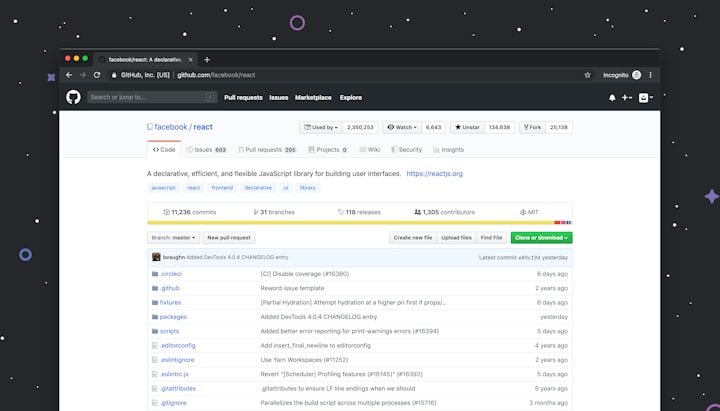
The web has reformed the manner in which we impart, separating hindrances and associating individuals from all edges of the globe. In this immense computerized scene, a worldwide language unrest is in progress. The force of the web has led to a phonetic peculiarity, where dialects mix, adjust, and change in manners never seen. In this article, we plunge into the profundities of this language upset, investigating how the web is reshaping correspondence and rising above phonetic limits.
One of the critical drivers of this worldwide language transformation is the rising utilization of English as a most widely used language. English has turned into the true language of the web, filling in as an extension for correspondence between speakers of various local dialects. From virtual entertainment stages to online discussions, English has turned into the ongoing idea that permits people from different phonetic foundations to associate and share thoughts. Subsequently, English capability has turned into a significant expertise in the computerized age, empowering people to partake all the more completely in the worldwide discussion.
Notwithstanding, the web's worldwide language unrest goes past the strength of English. It is a two-way road where dialects impact and shape each other in remarkable ways. Through the web, dialects are getting words, expressions, and articulations from each other, making a rich embroidery of phonetic trade. For instance, the far and wide utilization of emoticon, which rises above semantic boundaries, has turned into an all inclusive language of feelings and articulations. Additionally, well known web shoptalk and images frequently rise above phonetic limits, advancing into various dialects and societies.
Besides, the web has given a voice to minority dialects that might have in any case been minimized or neglected. Online people group and stages give spaces to speakers of these dialects to interface, offer, and safeguard their semantic legacy. Through the web, these dialects can flourish, contacting a worldwide crowd and renewing their networks. Language renewal endeavors, once restricted to neighborhood settings, can now tackle the force of the web to advance and support minority dialects.
The worldwide language upset of the web is additionally obvious in the development of interpretation advancements. Machine interpretation apparatuses, for example, Google Decipher, have made critical headways lately, giving moment interpretations between various dialects. While these apparatuses are flawed yet face difficulties with subtleties and setting, they have without a doubt spanned language holes and opened up additional opportunities for diverse correspondence. The web has turned into a jungle gym for continuous interpretation, working with multilingual discussions and coordinated efforts.
Nonetheless, likewise with any transformation, the web's worldwide language insurgency isn't without its debates and difficulties. Pundits contend that the strength of specific dialects and the dependence on machine interpretation can prompt etymological homogenization and the deficiency of social variety. There are worries that more modest dialects might be eclipsed, and social subtleties might be lost chasing after worldwide correspondence. It is vital to work out some kind of harmony between semantic inclusivity and the requirement for a most widely used language, guaranteeing that different dialects and societies keep on flourishing in the computerized domain.
All in all, the web's worldwide language transformation is changing the manner in which we convey, separating obstructions, and associating individuals across the world. English fills in as a typical language, while dialects impact and shape each other in extraordinary ways. The web engages minority dialects and offers interpretation advances that span etymological partitions. While difficulties and discussions exist, embracing etymological variety and social trade can encourage a more comprehensive and associated computerized society. The worldwide language upheaval of the web is a continuous cycle, and as we explore this semantic scene, let us commend the extravagance and variety that it brings to our internet based encounters. The web has altered the manner in which we impart, separating obstructions and associating individuals from all edges of the globe. In this tremendous computerized world, a worldwide language transformation is in progress. The force of the web has led to a phonetic peculiarity where dialects mix, adjust, and change in manners never seen before. In this article, we jump into the profundities of this language upheaval, investigating how the web is reshaping correspondence and rising above phonetic limits.
One of the critical drivers of this worldwide language transformation is the rising utilization of English as the most widely used language. English has turned into the true language of the web, filling in as an extension for correspondence between speakers of various local dialects. From virtual entertainment stages to online gatherings, English has turned into the repeating theme that permits people from assorted etymological foundations to interface and offer thoughts. Subsequently, English capability has turned into an important expertise in the computerized age, empowering people to partake all the more fully in the worldwide discussion.
In any case, the web's worldwide language unrest goes beyond the predominance of English. It is a two-way road where dialects impact and shape each other in remarkable ways. Through the web, dialects are getting words, expressions, and articulations from each other, making a rich embroidery of etymological trade. For instance, the far-and-wide utilization of emoticons, which rises above etymological hindrances, has turned into a general language of feelings and articulations. Additionally, well known web shoptalk and images frequently rise above semantic limits, advancing into various dialects and societies.
Besides, the web has given a voice to minority dialects that might have, in any case, been underestimated or neglected. Online people groups and stages give spaces for speakers of these dialects to interface, offer, and safeguard their etymological legacy. Through the web, these dialects can flourish, contacting a worldwide crowd and renewing their networks. Language renewal endeavors, once restricted to nearby settings, can now use the force of the web to advance and support minority dialects.
The worldwide language transformation of the web is additionally evident in the advancement of interpretation. Machine interpretation apparatuses, for example, Google Decipher, have made huge progress lately, giving momentary interpretations between numerous dialects. While these devices are somewhat flawed and face difficulties with subtleties and setting, they have without a doubt spanned language gaps and opened up additional opportunities for multifaceted correspondence. The web has turned into a jungle gym for constant interpretation, multilingual discussions, and coordinated efforts.
In any case, as with any upheaval, the web's worldwide language transformation isn't without its contentions and difficulties. Pundits contend that the strength of specific dialects and the dependence on machine interpretation can prompt etymological homogenization and a deficiency of social variety. There are worries that more modest dialects might be eclipsed and social subtleties might be lost in chasing after worldwide correspondence. It is vital to work out some kind of harmony between etymological inclusivity and the requirement for a most widely used language, guaranteeing that different dialects and societies keep on flourishing in the computerized domain.
All in all, the web's worldwide language transformation is changing the manner in which we impart information, separating obstructions, and associating individuals across the world. English fills in as a typical language, while dialects impact and shape each other in uncommon ways. The web engages minority dialects and offers interpretation advancements that span phonetic partitions. While difficulties and debates exist, embracing semantic variety and social trade can encourage a more comprehensive and computerized society. The worldwide language insurgency of the web is a continuous interaction, and as we explore this semantic scene, let us commend the lavishness and variety that it brings to our internet-based encounters.





Comments
There are no comments for this story
Be the first to respond and start the conversation.